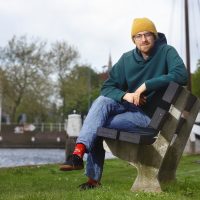The summer holidays have passed. For me, this not only marks the start of the new academic year, but also the beginning of the end. I will graduate – I hope – in half a year and this will mark the end of six and a half years of studying and getting distracted by all sorts of projects and part-time jobs.
It also means that I have to start thinking more seriously about what I want to do afterwards. How do I make the world a better place while still earning money? How do I work on problems that I think are worthwhile, while keeping plenty of career opportunities open? It should be possible, shouldn’t it? But how? This feels like the biggest decision I need to make since I chose my study six years ago.
I often talked about the study options with friends. And I see now that the options for your first job are a hot topic among my peers. They are either graduating soon, like me, or they were faster than me and are already finished. And, just like me, a lot of people are thinking about how to use their backgrounds and education in the world.
This is creating doubts among many of them.
If I think about the issues that interest me, they include things like climate change, unequal opportunities, and keeping the cultural sector going. If I think about problems that best fit my Computer Science background, I think sooner about jobs like a software consultant or data analyst at a big firm.
What issues do I think are worthwhile?
I don’t want to exaggerate as these are naturally not my only options. Climate organisations need servers, and to address unequal opportunities properly, an enormous amount of data needs to be analysed. But my peers and I have not given enough thought to the big questions, starting with: what issues do I consider worthwhile? And in particular, what kind of problems would best benefit from my technical knowledge? And how?
Between those two major decisions, the study you choose and the first job you choose, a student takes a lot of small decisions. You have to choose your own subject for just about every essay you have to write. You choose your electives and a minor. In a lot of projects, you choose what you will build, analyse, research or design, including your final bachelor’s or master’s final project.
I would encourage everyone to use these options to experiment thinking about these kinds of issues. From the first year Industrial Design students who, once they have chosen their study subject, do not feel like thinking again about choices, to the fifth year Electrical Engineering nerds who only want to think about overheated transistors. What is important for you? How would you like to use your expertise?
You can experiment with this, without major consequences, during your studies. Choose a subject that you may want to work on for the rest of your life, and do a project subject on it. Design an app to prevent food waste. Write a technical report on the freedom of the press. You may not enjoy it all. But it will only last for three months, and you’ll have learned something.



Comments are closed.